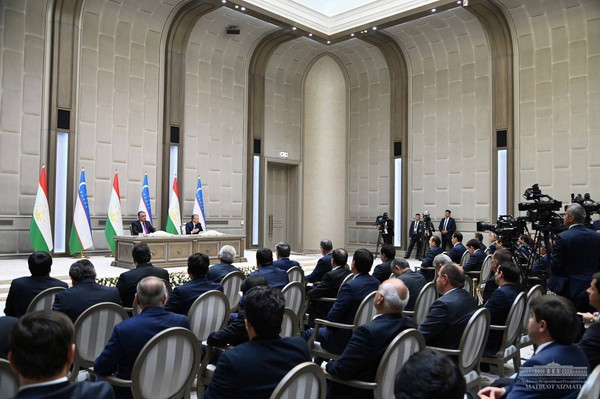
Environmental protection and rational nature management is a priority in cooperation between Uzbekistan and Tajikistan
Tashkent, Uzbekistan (UzDaily.com) -- As part of the official visit of the President of Tajikistan to Uzbekistan and high-level talks, the parties signed a number of documents providing for the further expansion of multifaceted Uzbek-Tajik cooperation.
One of the important documents was the Memorandum of Understanding between the State Committee of Uzbekistan for Ecology and Environmental Protection and the Committee for Environmental Protection under the Government of Tajikistan in the field of environmental protection and rational nature management.
The joint document adopted by the parties is aimed at improving the forms of cooperation in the field of environmental protection and rational nature management, which directly reflects the relevance of the interaction between the two specialized structures in the light of the existing challenges and threats in this direction.
Within the framework of the Memorandum, the parties intend to continue cooperation in the implementation of effective environmentally friendly resource-saving technologies, the study and restoration of populations of rare and endangered species of animals and plants, and the development of a system of protected natural areas.
In addition, Uzbek and Tajik specialists aim to jointly deal with the creation of transboundary protected natural areas to coordinate environmental monitoring activities.
In this context, in order to fully implement the signed Memorandum, it is planned to create a joint working group consisting of experts from relevant organizations of the two countries.
Uzbekistan and Tajikistan have a unique geographical position in Central Asia, combining many landscape forms, climatic zones and biological species.
Global climate change and population growth in both countries, as well as in the Central Asian region as a whole, negatively affects the overall environmental situation and the conservation of plant and animal biodiversity.
The predominance of resource-intensive production with a high level of environmental impact has already led to the pollution of natural resources, the disappearance of many species of flora and fauna, risks to public health and an increase in the number of deaths in the region.
The current situation is already acting as a threat multiplier – increasing conflict in the region, increasing tension in societies, leading to structural inequality.
Undoubtedly, work in the direction of environmental protection and rational nature management is extremely relevant and necessary. The establishment of close cooperation between Uzbek and Tajik specialists will certainly contribute to the formation of conditions for sustainable development not only of our two fraternal countries, but of the entire region of Central Asia.
F. Abdullayeva, Chief Researcher, MICA